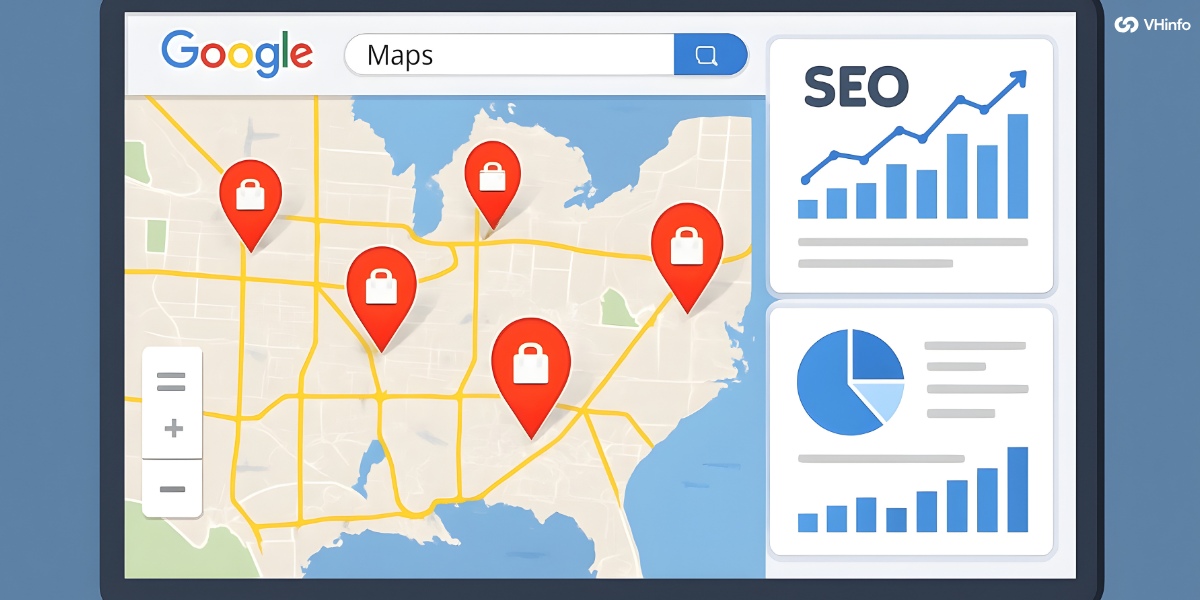Keyword terms are words or groups of words that people type in when they search for things online. People use them to find answers, products, or helpful information on the web. Picking the right keywords can help websites appear higher in search results.
This means more people may click and visit those sites. It also helps bring new buyers to their main pages. If a business wants to run ads with Google or get better at free search, choosing strong keyword terms is very important.
It is the first step for getting more visitors from Google Search. VH Info has a team that helps software companies find special keywords. These keywords have less competition, so their writing gets seen by real people and new buyers.
What Are Keyword Terms?

Defining Core Keyword Concepts
A keyword term is any word or set of words people use to look for something in search engines like Google. For example, “running shoes” is a keyword term, and so is “cheap running shoes for kids”.
Keywords help search engines match your website page to what people want to see in their search results. Some keywords are just one word, like “shoes,” while others are longer phrases, like “best shoes for hiking”.
Understanding User Search Intent
Search intent means what a person wants when they type a search term on a website or in the Google Ads account search box.
Some want simple answers, some want to buy something, and some want to read or learn more. The search engine uses keyword terms to figure out their search intent and decides which landing page or product page to show.
The Role of Keyword Terms in Search Engines
Search engines use keyword terms to connect people’s search queries with the right website, blog posts, or product pages.
If you use relevant keywords and keyword suggestions in your title tag, meta description, headers, and image alt text, search engine optimization (SEO) becomes easier so your content strategy shows up higher on the first page.
Why Are Keyword Terms Important For Your Website?

- Driving Relevant Organic Traffic: Choosing the right keywords brings organic traffic from Google Search to your site. Specific queries, like long tail keywords, mean people are searching for something special, and your blog posts can answer that need for potential customers. High-quality relevant keywords in your keyword list help more people find your content, and Google ads keywords can attract paid visitors by showing search ads for related keywords.
- Improving Search Engine Rankings: Websites need keyword terms that match what people are actually typing, or their search results will not show up on the first page. Using keyword research tools like Google Keyword Planner lets you see monthly search volume, related keywords, and keyword ideas so you can update and improve your SEO content and product pages.
- Understanding Your Target Audience: If you want better ad campaigns and ppc campaigns, learn what your target audience is searching for using a keyword research tool. The more you match your keyword terms to their search intent, the more likely your Google ads account will generate a list of keywords that reaches potential customers who care about your products or services.
The Main Types of Keyword Terms to Target

Short-Tail Vs. Long-Tail Keywords
Short-tail keywords are short, like “shoes” or “seo tools,” and lots of people search for them. They have high search volume but usually lots of competition, so it can be hard to get on the first page of Google Search with only head terms.
Long-tail keywords are longer phrases, like “best shoes for flat feet” or “free keyword research tool for beginners.” These attract people looking for something specific, often with less competition, so they are great for seo content and blog posts.
Informational, Navigational, Commercial, and Transactional Keywords
- Informational keywords answer questions, like “how to write a meta description” or “search trends in 2025”.
- Navigational keywords help people find a specific website or landing page, like “VH-info SaaS link-building”.
- Commercial keywords show buying interest, like “best keyword tool reviews”.
- Transactional keywords point to buying actions, like “buy Google Ads keywords” or “sign up for PPC strategies”.
Branded, Competitor, and Product-Related Keywords
Branded keywords include company names, like “VH-info link building”.
Competitor keywords have other company names, like “compare SaaS link-building agencies.” Product-related keywords target special product pages, like “keyword planner software features.”
Negative and Locational Keywords Explained
Negative keywords help filter out traffic that isn’t right for your ad campaigns, so your Google ads account does not waste money showing broad match keywords that won’t convert. Locational keywords use places, like “SaaS link-building agency in New York,” so your google ads campaigns focus on the right geographic target audience.
Seed, LSI, Evergreen, and Low-Competition Keywords
- Seed keywords are starting ideas, like “content marketing” or “search engine optimization”.
- LSI (Latent Semantic Indexing) keywords are similar keywords related to your main topic, helping search engines understand your page better.
- Evergreen keywords always get search traffic, like “how to do keyword search.”
- Low-competition keywords have less monthly search volume but are easier to rank for in organic search and advertising campaigns.
How to Conduct Research For Valuable Keyword Terms?

- Brainstorming Initial Seed Keywords: Begin with a keyword list of seed keywords that fit your business or blog posts. Ask teammates what search terms or search queries potential customers might use in Google’s search box. Note down popular keywords and related keyword ideas.
- Utilizing Keyword Research Tools: Use a keyword research tool or a free tool like Google Keyword Planner or Google Ads Keyword Planner. These show monthly search volume, keyword suggestions, and match type options like phrase match, broad match, and exact match for each target keyword.
- Analyzing Your Competitors’ Keywords: Look at competitor websites to see what new keywords, long tail phrases, and negative keywords they target in their Google Ads campaigns or seo content. Tools like Google Search Console help you see which search terms bring visitors to your pages.
Best Practices For Implementing Keyword Terms

- Placing Keywords in Titles, Headers, and URLs: Put the main keyword in your page’s title tag, URL, and headers (H1, H2, H3). Use relevant keywords so your content strategy matches key search intent, and SEO tools can help you track first page rankings.
- Writing Natural, Keyword-Rich Content: Write simple, clear paragraphs with a good mix of keyword terms, so search engines and people both understand your page. Add similar keywords and related keywords to strengthen your SEO content and help your content marketing reach more readers.
- Optimizing Meta Tags and Image Alt Text: Don’t forget to use specific keywords in your meta description and image alt text. That way, search engines show your blog posts, product pages, and landing pages to more people as part of search trends and advertising campaigns.
FAQ’s:
What is the Difference Between Keyword and Subject Searching?
Keyword searching means typing words or phrases in the search box to find specific queries and related keywords. Subject searching groups lots of similar keywords and search terms into big topics, so users get broad results.
What is the Main Purpose of Keyword Research?
Keyword research helps websites, advertising campaigns, and blog posts find the right keywords to attract relevant traffic, improve organic search rankings, and reach their target audience with a strong content strategy and ppc strategies.
Should You Target Keywords With Very Low Or No Search Volume?
Sometimes it helps to target long tail or low-competition keywords in ppc campaigns, especially if they fit your product pages or bring new keywords with less competition. But most traffic comes from popular keywords with decent monthly search volume.
How Do Keywords Impact Search Engine Rankings?
The better keywords match a user’s search intent, the higher your web pages and ad campaigns can show in Google Search results. Using a list of keywords, placing them naturally, and matching phrase match or exact match types all make a strong difference.
What Is Meant By A ‘Keyword Universe’ In SEO?
A keyword universe is a big list of every keyword search, related keyword, and search term your website might target for all its landing pages, product pages, blog posts, and Google ads keywords in search campaigns or advertising campaigns.
Conclusion
Finding and using the right keyword terms helps websites, blog posts, and product pages attract the right target audience, climb higher in Google Search results, and improve Google Ads campaigns by showing the right ads to people with commercial intent.
VH Info specializes in helping SaaS companies find powerful keyword ideas, strong keyword lists, and valuable keyword suggestions. We use modern content marketing and SEO strategies so every landing page and ad campaign converts more potential customers.
For anyone serious about keyword research, google ads keywords, and SaaS link-building, VH Info is the trusted partner to help your site rank better and grow faster in organic search.



